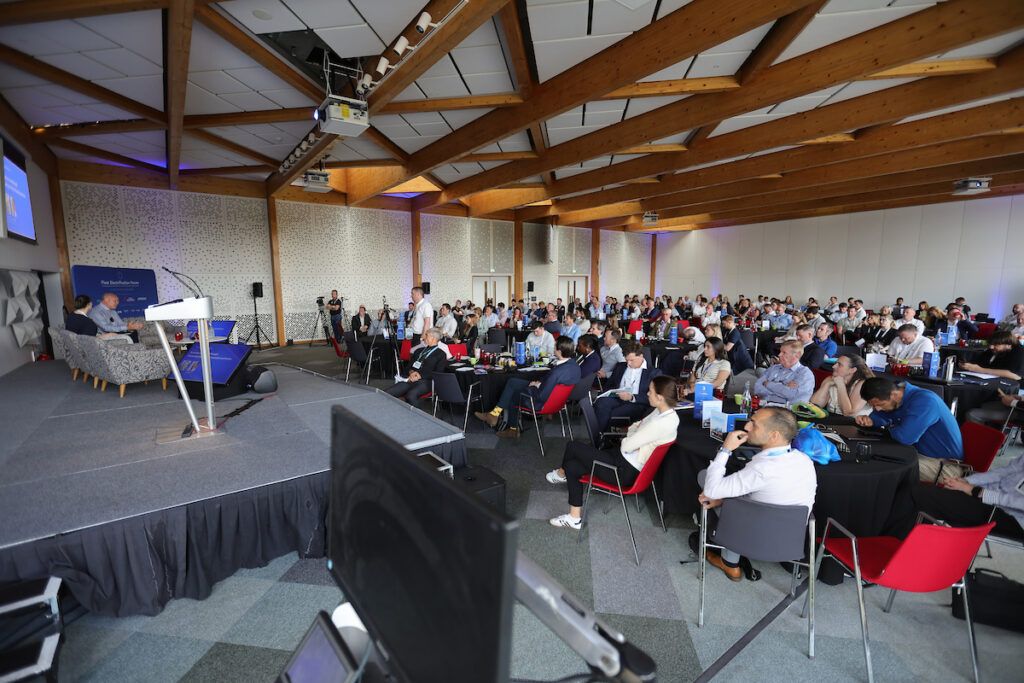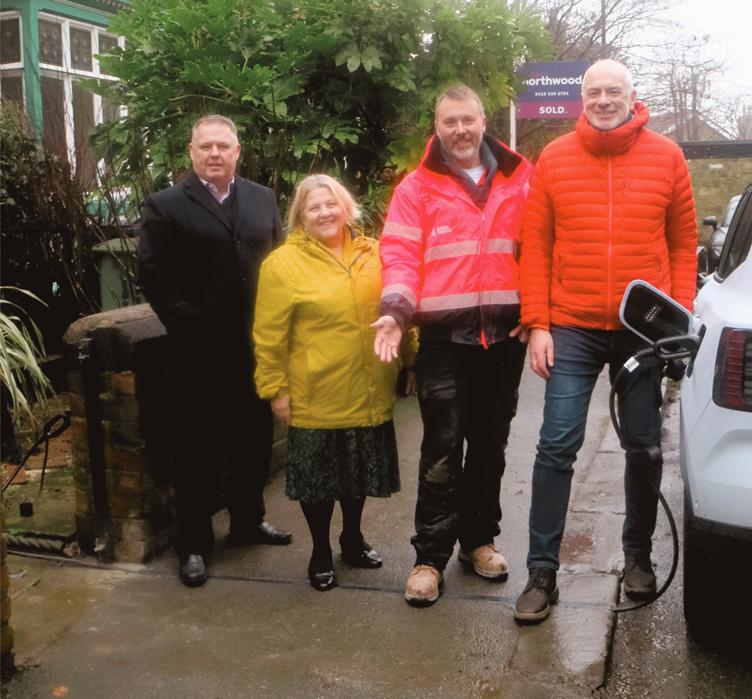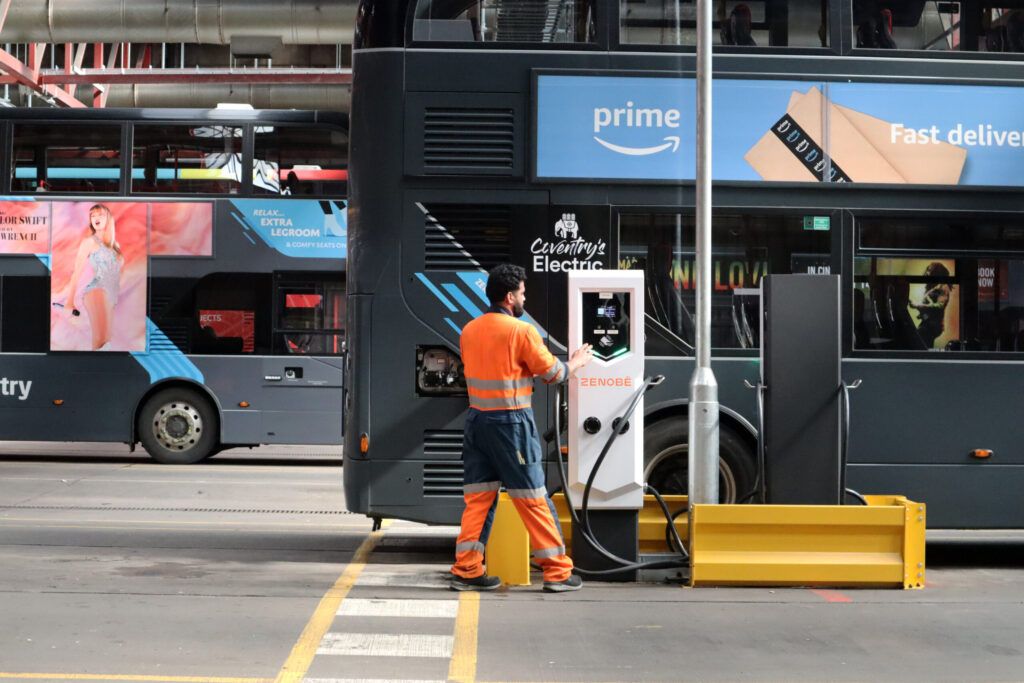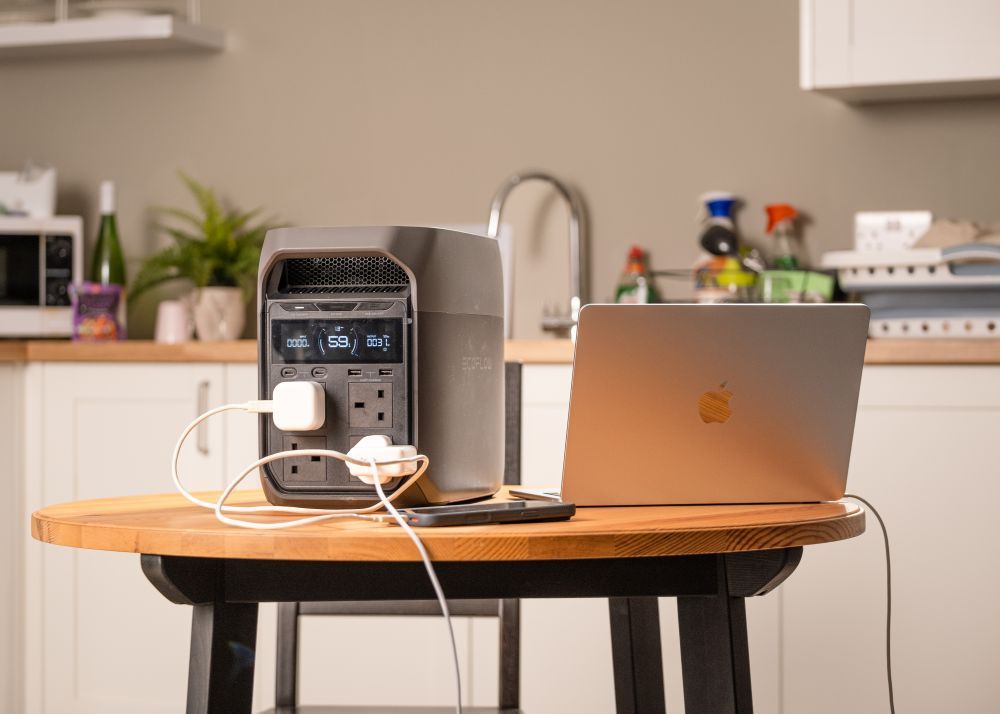Last week’s Fleet Electrification Forum saw a number of sector-leading organisations come together to call for action which would enable the decarbonisation of transportation.
The event at Warwick Conferences kicked off with founder of Transport + Energy Alec Peachey highlighting the progress made to-date, but the large amount of work which still needs to go into transitioning the UK vehicle parc to fully decarbonise road transport.
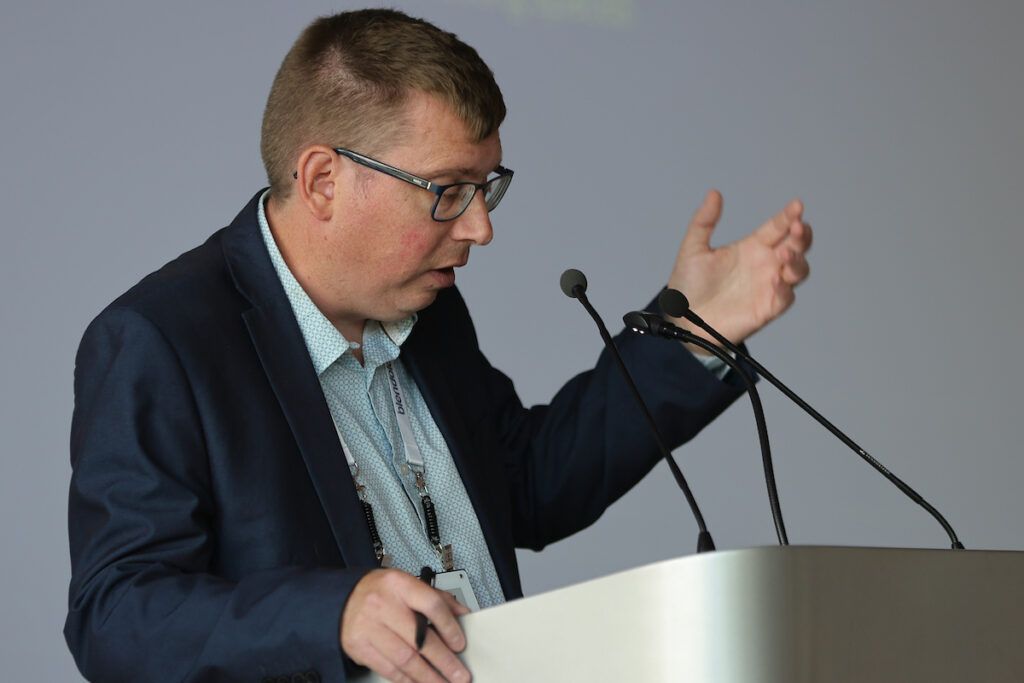
Peachey said though that with challenges “comes opportunities” and “new ways of working”, which formed the foundation stone of Transport + Energy: collaboration.
He said: “There is now the need to collaborate with colleagues in the workplace who fleet managers rarely chat with at the Christmas party, let alone engage deeply with on large-scale company projects and collaboration.
“Facilities and energy managers, sustainability managers, office and asset managers, financial officers, skills and training managers…there are many colleagues that fleet and transport managers now need to work with for the transition to be successful.
Peachey was followed by Claire Miller from Tellegen, who produced the first direct delegate poll of the day through the tool Slido, which revealed that cost, funding, culture, charging infrastructure and policy certainty were the biggest barriers impacting the fleet sector.
Climate Group
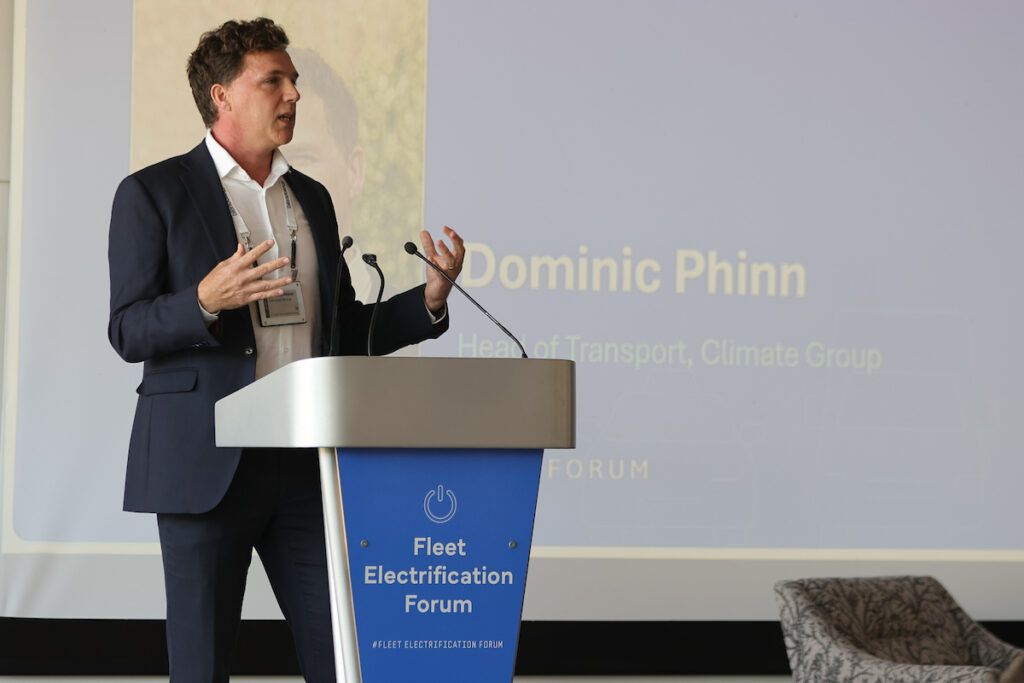
This was followed by a keynote speech from Climate Group’s Dominic Phinn. He said fleets will play an “absolutely essential” role in the decarbonisation of transportation.
He added that fleet would play a “huge role” in the transition, and explained how The Climate Group, and its EV100 initiative, had been getting in front of the UK Government, and stating that EVs needed to be affordable, in quantity, and in the “volume and variety” required, as well as getting the charging infrastructure in place.
He said: “The role of fleets is absolutely essential to the transition. We want the UK to replicate what we are seeing in other countries across the world, including Japan and India. The ZEV Mandate has been a key area, which we have been active on.”
This was followed by a fireside chat with Drax Electric Vehicles, who explained how the sector needed to start off with the basics and ensure that they had a plan before work commenced. But at the same time, Lyndsey Hetherington from Drax said that it was important to just commence work, and that a lot of learning can be done just from getting started on the transition.
Corporate fleets
A session on how ambitious corporate fleets were driving the UK into a clean transport future saw some of the biggest players in the electrification of fleet discuss the core issues for their transitions.
Lorna McAtear, the Head of Fleet at National Grid, Olly Craughan of DPD, Stuart Murphy from Royal Mail and James Ferrol from Dunelm explained the work they had done. As Murphy stated, its “long way to go for us as an organisation, but we are getting there.”
A critical example of collaboration came with First Bus’ detailed insight into its new First Charge initiative, which it formally launched a few days after the conference.
The bus company had 200 electric vehicles (EV) in 2022 and now has more than 1000 EVs, with a “lot of learnings” produced from its shared infrastructure initiative when the firm “went so far, so quickly”.
Shared charging
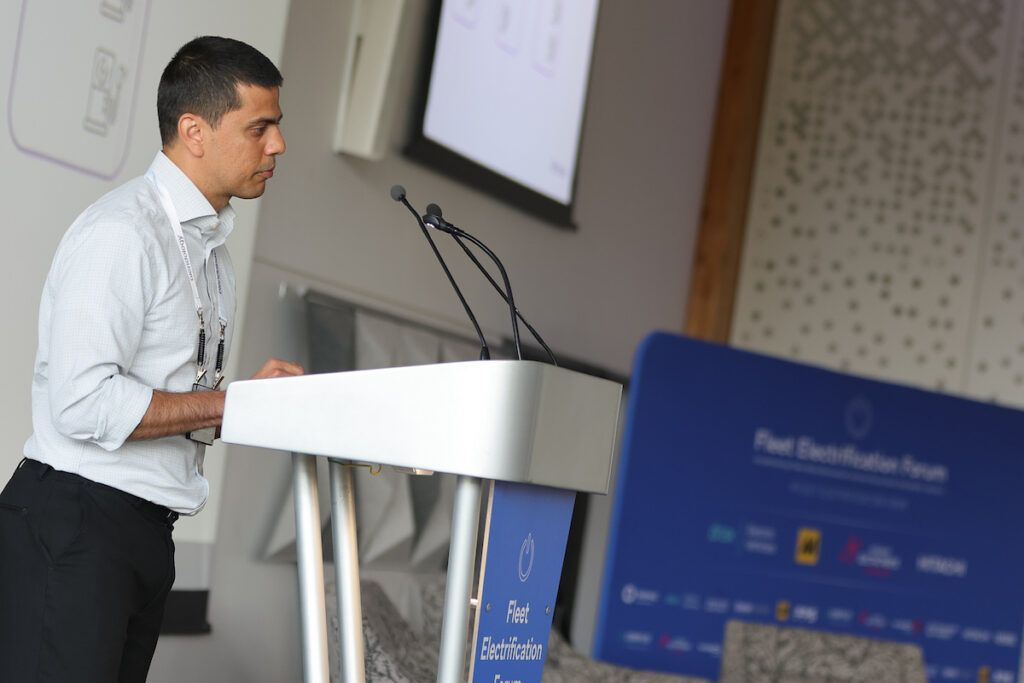
First Bus’ Faizan Ahmad said that the company had undertaken a three-pronged approach to sharing its charging infrastructure, which is located at bus depots with rapid chargepoints.
He highlighted how there had been a “changing of minds” around public charging, and that “it doesn’t have to be a prime retail experience, you can just be providing the public with facilities by a bus depot”.
A joint presentation by Zemo Partnership and the Welsh Government revealed how cost effectiveness and understanding local needs was “crucial to the decarbonisation of commercial vehicles in Wales”.
Jonathan Murray, the acting managing director of Zemo Partnership, and Dafydd Munro, the head of transport decarbonisation policy at the Welsh Government, described how the energy and industrial sectors had done a lot of the “heavy lifting” to-date on decarbonisation – but now surface transport would play a crucial role as the “next step”.
In terms of electrification, Murray added that “one of the key things was the reliance on used vehicles” in Wales, and the “importance of a fair transition and the legacy fleet is really important”.
HGVs
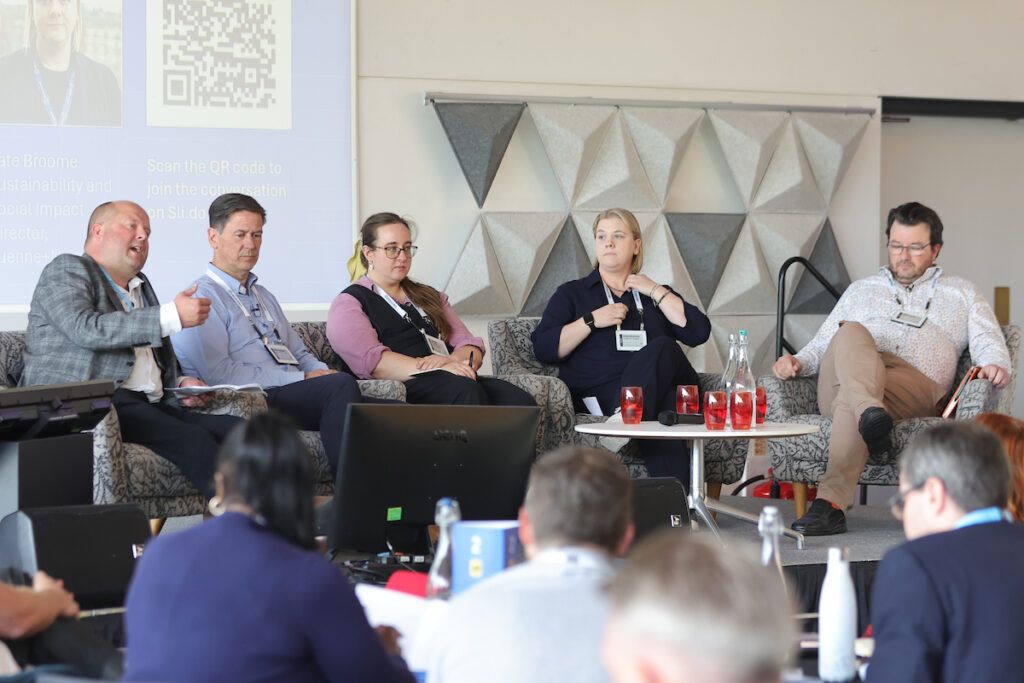
Sessions on logistics and heavy goods vehicles analysed one of the harder to decarbonise sectors of transportation. But examples shown revealed the good work being done in the space.
Dr Isabella Panovic from Innovate UK explained how the ZEHID trials will show that the “vehicles are viable and by the time we get to the end of the programme in 2030” and that “hopefully we will see this happen holistically outside the project by this date as well”.
She added: “There are really exciting things on autonomous freight and other technologies, and some of the new benefits that we are already seeing in the US coming to the UK marketplace.”
Mike Nugent, the chief revenue officer at Hitachi ZeroCarbon added that innovative financing and ensuring the sector can access low cost and highly efficient funding to Total Cost of Ownership parity with ICE vehicles is what the firm was “totally focused and driven on”.
He added: “I would be disappointed if by 2030 we aren’t able for SMEs to be able to access the kind of capital that larger players can get hold of.”
There were also critical sessions of electric vans and emergency vehicle electrification, which revealed the challenges and opportunities for these two parts of the sector.
SUFA
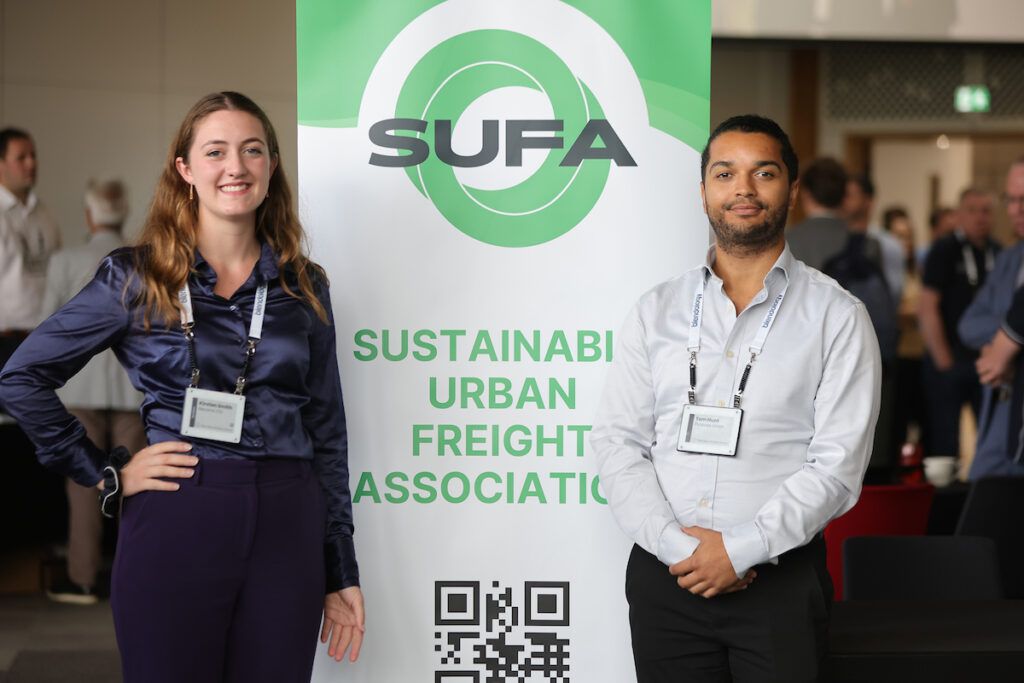
There was even a launch of a trade association at the event. Sustainable Urban Freight Association (SUFA) brings together freight providers with a shared vision of ultra-low emission deliveries and services.
It comes as cities across the UK are implementing new measures to reduce congestion and air pollution. SUFA will advocate for innovative solutions and policy changes that will enable clean vehicle transitions within this policy environment.
SUFA prioritises activities including policy and government engagement, research and networking. Its focus areas will be to support freight operators investing in electric vehicles, cargo bikes and multimodal freight solutions.
Fleet Electrification Manifesto
The above outlines only some of the key findings from the event. Transport + Energy will be releasing a Fleet Electrification Manifesto in the coming weeks with all of the core outputs from the conference.




